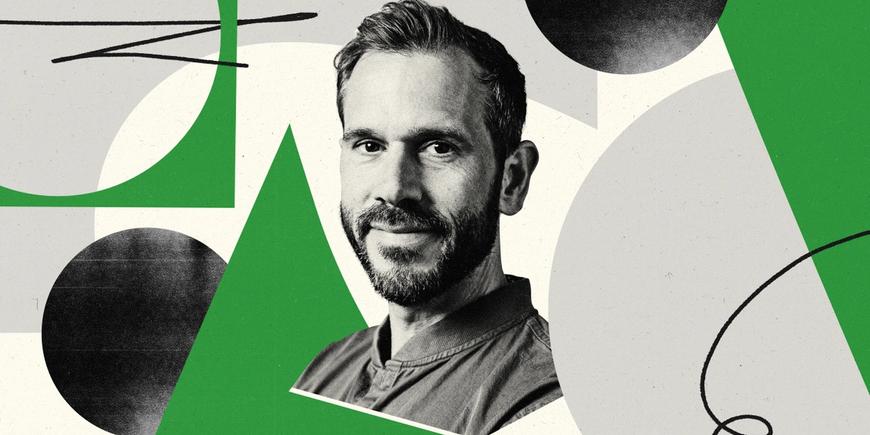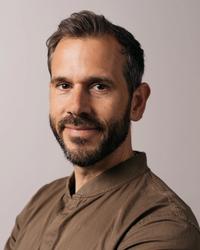Navigating Different Paths to VC Investing and How to to Break In
Primary’s Jo Cheng recaps the ‘Paths to Venture Capital Investing’ roundtable discussion Partner Brian Schechter hosted for Primary’s Mastermind Networks.

Working at Primary, I’ve seen firsthand how many people want to get into venture capital, whether that be an investing or operating role. We created the Mastermind Networks to level up current Chiefs of Staff, Sales, and Marketers in their functions, but we’ve noticed many members ultimately see venture as a career destination. If you were to research online, there aren’t a ton of easily digestible insights into how the industry works, its norms and expectations, but more specifically, how to break in. Due to the overwhelming amount of interest from our Mastermind Network members and a desire to provide the most relevant programming, we invited Partner Brian Schechter, who has navigated a founder-first path into venture (Primary was an early investor of his), to share how he’s seen the industry evolve and the different but defined paths to building a career in venture capital.
Here’s how, in his words:
Analyst → Associate → Principal → Partner
Traditionally, and still apparent today, is the typical path of starting as an Analyst, to Associate, to Principal, and finally to Partner. “This path takes approximately two to eight years to walk depending on the firm and deals you’re able to help make happen” says Brian. “Each level gets harder to transition into if you haven’t done the role before that.”
The backgrounds that are suited for this career ladder include “late-stage growth investing, investment banking, private equity, or business school” says Brian. These are good entry points for individuals looking to break in.
Founder or Operator in a Fast-Growing Startup
A quality we admire here at Primary is having operating experience. “The most valuable experience that you can have [prior to joining a VC firm] is to be a part of a company that is growing rapidly” says Brian. “You want to develop pattern recognition for what success looks like.”
At Primary, we have Operators-in-Residence (OIRs) who help with diligence and incubation. The best candidates are “people who have operating experience that want to experience zero to one company building from an idea to revenue generation” says Brian. “The OIR is also a great way of getting exposure to venture. It's not being an investor. It's really more working on an incubation, but you're operating inside of the firm and can start to learn about how it works.”
So you’re in one of these positions, and are looking for ways to break in?
Develop an authentic investment approach
“There are different styles for different investors,” says Brian. “There are people who have 20K followers on Twitter and have conversations online with founders in a particular industry. And there are people who go really deep into an industry to find founders working on estuary probes that nobody else knows about. These are just two different approaches, but again, you need to develop one.”
Do what feels most authentic to you.
Obsess over startups
The most successful investors are passionate about startups and are constantly reading about them. Take advantage of what you can find on the internet.
“Twitter, email newsletters, and blogs. There's a ton of firms that are constantly putting out content. If you're not living and breathing that stuff, it's very hard to find a way to break in” says Brian. “This can help you understand the terminologies—cap tables, deal terms, legendary venture capitalists. All of this is available online.”
Suggested people to follow on Twitter as you’re getting started: @nic_detommaso, @APompliano, @fredwilson, @paigefinnn, @oanaolt, @edsim, @alanaagoyal, @cdixon, @zck, @gaby_goldberg, @venturetwins.
Newsletters: Term Sheet, Pro Rata, A16Z Future
Podcasts: The Twenty Minute VC, Cartoon Avatars, Invest Like The Best, How I Built This
Books: Venture Deals by Brad Feld, Secrets of Sand Hill Road by Scott Kupor
Specialize in an industry/function
With the wealth of opportunities and players, it’s crucial to distinguish yourself. “If you're doing everything, then you can't really stand out in anything. So you want to specialize” says Brian. It’s getting increasingly difficult to “compete with people who are diving very deep - whether that be stage, industry, or geography.”
Identify how to add value
It is never too early to start adding value to investors and founders. As you come across interesting deals, send them along to investors you admire. On the founder side, understand what their needs are and work your network to support them.
Start investing
“You can start really small,” says Brian. “You can get into a pre-seed business at the very beginning where any amount matters to them. And if you don’t have the money, you can start organizing an SPV, a special purpose vehicle. It's a lot of hustle, finding deals, sharing those deals with individuals in your network or through additional networking. This is how you begin building a track record.”
Rani Kubersky, an MBA Associate at Primary, started out this way. She was eager to enter the venture ecosystem and started co-leading syndicates before business school. It gave her an edge during recruiting. Through her syndicates, she was able to illustrate a track record of success and an ability to hustle. For her, it made recruiting that much easier.
If you want to grow in your startup role or learn more about a career in VC, I encourage you to join Primary’s Mastermind Networks, community and programming focused on accelerating careers. If you’re looking to join a fast-growing startup to get operating experience, you can fill out this form here and we’ll connect you with our portco’s talent teams and give you visibility to our founders.
